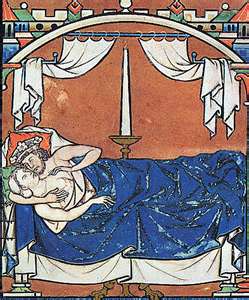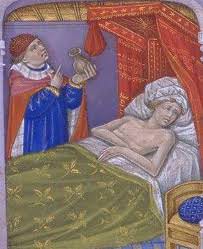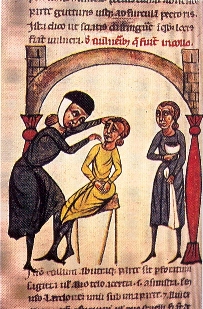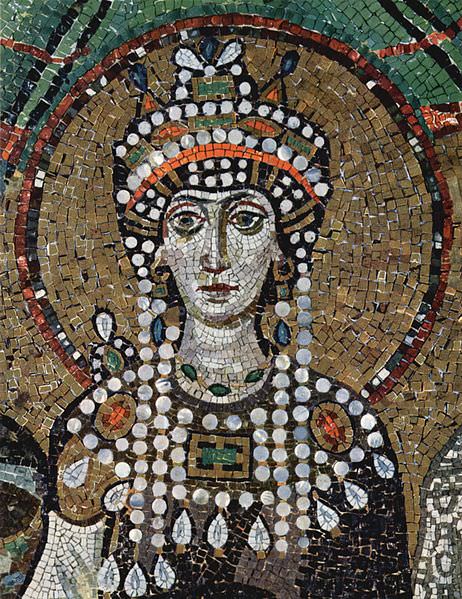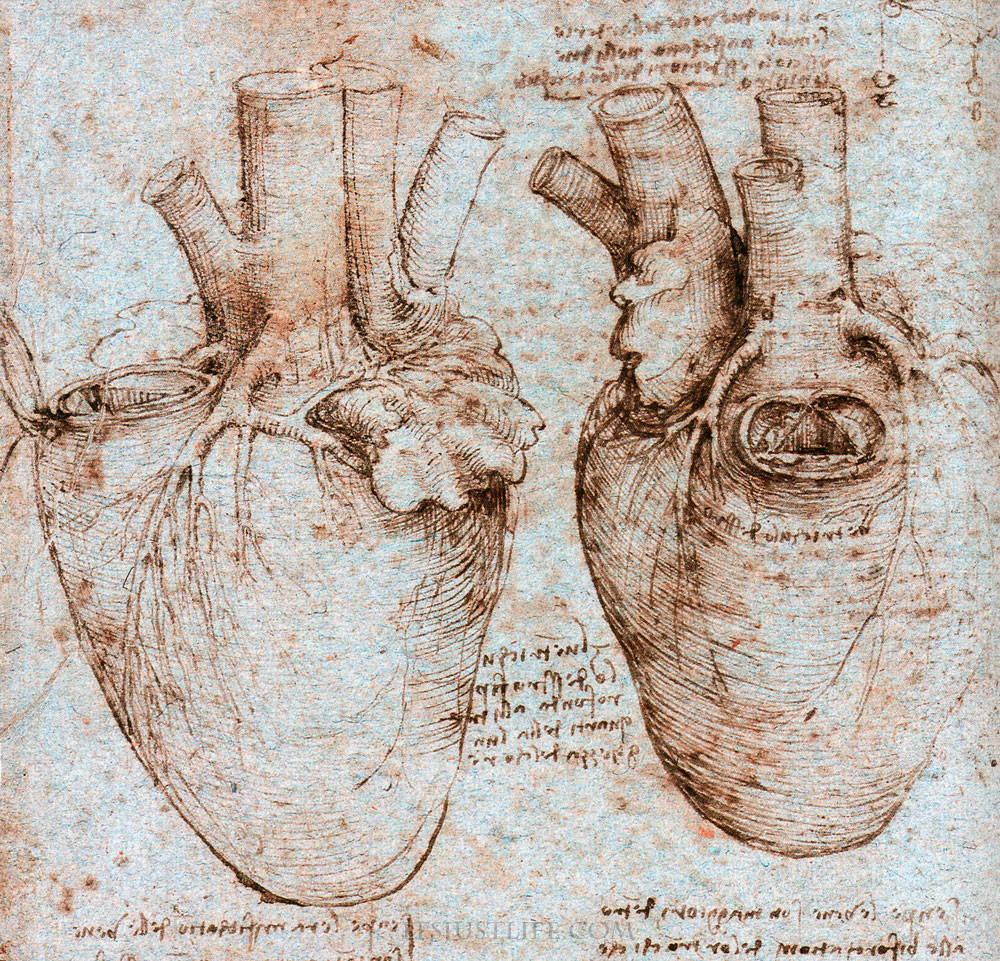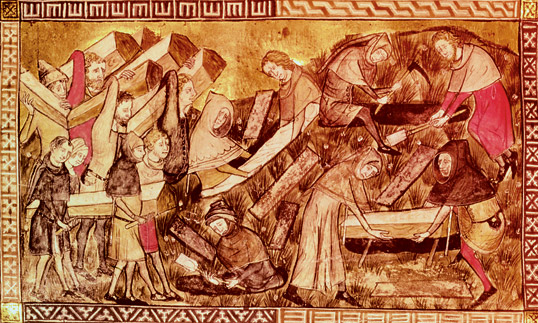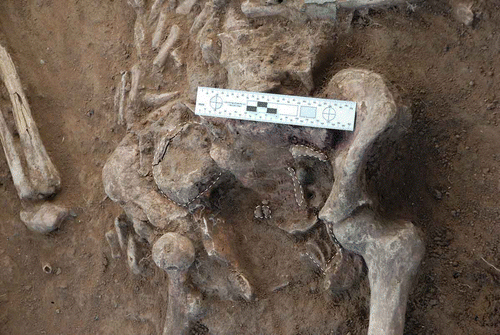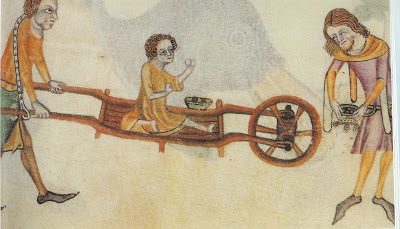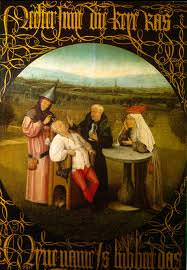Sex and obscenity in medieval art
When researching early or ‘forbidden’ historical subjects it can be a considerable challenge finding primary sources that give a first-hand experience of contemporary events.
Phthiriasis: the riddle of the lousy disease
Of all the legendary and fantastic diseases of ancient times, phthiriasis, or the lousy (lisease, wvas the most intriguing and bizarre. In the corrupted humours of the sufferers of this disease, lice were believed to develop by spontaneous generation, and tumours full of these insects rose on the skin.
Anesthesia Drugs in the Medieval Muslim Era
In the Middle Ages, Christian Europe was in a state of intellectual stagnation and the theological doctrine that pain serves God’s purpose and must not be alleviated militated against the improvement in methods of narcosis. Nuland points out that the Middle Ages in Europe were dark ages so far as advances in the pharmacology of anesthesia were concerned.
Integrative Medicine: Incorporating Medicine and Health into the Canon of MedievalEuropean History
Hitherto peripheral (if not outright ignored) in general medieval historiography, medieval medical history is now a vibrant subdiscipline, one that is rightly attracting more and more attention from ‘mainstream’ historians and other students of cultural history.
Integrative Medicine: Incorporating Medicine and Health into the Canon of Medieval European History
Hitherto peripheral (if not outright ignored) in general medieval historiography, medieval medical history is now a vibrant subdiscipline, one that is rightlyattracting more and more attention from ‘mainstream’ historians and other studentsof cultural history.
Menstruation in Sacred Places. Medieval and Early-Modern Jewish Women in the Synagogue
How sacred is the Synagogue? Can a woman enter this holy place while menstruating? What is more sacred: the space, or the Holy objects within it?
Stature and frailty during the Black Death: the effect of stature on risks of epidemic mortality in London, A.D. 1348-1350
Recent research has shown that pre-existing health condition affected an individual ’ s risk of dying duringthe 14th-century Black Death. However, a previous study of the effect of adult stature on risk of mortality during the epidemic failed to find a relationship between the two; this result is perhaps surprising given the well-documented inverse association between stature and mortality in human populations.
Theodora, Aetius of Amida, and Procopius: Some Possible Connections
Behind the purported facts of Theodora’s career as a common prostitute and later as empress are the hidden details of what we might call feminine pharmacology: what were the drugs used by prostitutes and call-girls in sixth-century Byzan- tium? Were there ordinary pharmaceuticals employed by such professionals to stay in business?
Healthscaping a Medieval City: Lucca’s Curia viarum and the Future of Public Health History
Healthscaping a Medieval City: Lucca’s Curia viarum and the Future of Public Health History G. Geltner (Department of History, University of Amsterdam) Urban History: 40,…
Sickness and Sin: Medicine, Epidemics and Heresy in the Middle Ages
Disease was more common, as already unsanitary populations grew more crowded, culminating with the devastating Black Death. With mostly Church chronicles telling the story, and a sense of religion underlying everyday life, comparisons were bound to be drawn between plagues and unruly dissent. On the one hand sickness of the body and the other a corruption of the mind.
Fasting and the female body : from the ascetic to the pathological
Importantly, the dietary practices of the early Christians cannot be understood as a single corpus of ideas or practices. It could mean going without food altogether, as in the case of one of the desert fathers, Simeon Stylites, who ate nothing for the whole of lent.
Post-mortem Ablation of the Heart: a Medieval Funerary Practice
In the Middle Ages the heart represented the whole body. Unlike modern man for whom the brain is the centre of higher function, medieval Christians saw the heart as the moral and intel- lectual centre. Saint Augustine contributed much to this attitude by describing the heart not only as the seat of intelligence, will power, memory, emotion, and other feelings but also as the authentic and indivisible source of life.
Plagues, Epidemics and Their Social and Economic Impact on the Egyptian Society during the Mameluke Period
The study aims at shedding light on plagues and epidemics that hit Egypt during the Mameluke period through describing the plague disease and the plagues and epidemics that hit Egypt, and their social and economic effects on the Egyptian society, The study is based on some historical sources contemporary of the Mameluke period, especially the book “Al-Suluk li-marifatiduwal Al-muluk” by Al Maqrizi.
Avicenna’s Concept of Cardiovascular Drug Targeting in Medicamenta Cordialia
Avicenna (980 – 1037 AD) known as the prince of physicians in the west was one of the most prominent Persian thinkers, philosophers, and physicians. Owing to his interests in cardiology, he authored considerable works on different aspects of cardiology.
Reconsidering obstetric death and female fertility in Anglo-Saxon England
Little has been written about female fertility and maternal mortality from an archaeological perspective. Typically debates focus on the physical aspects of childbirth, ignoring an obvious truth: the biggest single cause of death for women was childbirth.
Civic and Religious Understanding of the Mentally Ill, Incompetent, and Disabled of Medieval England
This brief summary covered the fourth paper given at KZOO’s Mental Health in Non-medical Terms. It covered ways in which theologians, like Thomas Aquinas, tried to categorize mental disability. Aquinas also tried to prove that the mentally impaired were able to receive sacraments depending their lucidity and where they fit in his four categories. It was an interesting and enjoyable paper.
Mental Disability and Intellectual Impairment in the Middle Ages: Some Preliminary Research Findings
This interesting paper was one of the four given in the Mental Health in Non-medical Terms session at KZOO. It looked at philosophy, iconography and the way mental disability was viewed in the Middle Ages.
Going Mad in French: Royal Notaries and Charles V’s Translation Project
This was another interesting paper from the Mental Health in Non-medical Terms session at KZOO on notaries, and how crimes committed under “mental duress” were processed.
Man Bites Dog: Alarming Effects of Medieval Animal Venom
This paper was part of a fantastic series on mental health and disability in the Middle Ages. It was very humorous. This paper examined various types of bites, the “medieval symptoms” and some cures. So if you don’t want to bark like a dog, or lash out at people with your teeth, read on…
The Death Toll of Justinian’s Plague and Its Effects on the Byzantine Empire
In 541 a plague arrived in Egypt and rapidly began to spread. The following account of the beginning of the plague, while clearly an exaggeration still shows the impact of the disease.
“Morus per se?”: Pain and its Treatment in Thirteenth- and Fourteenth-century Europe
Yet of the many medical conditions that face human beings, pain is one of the most valuable to study from a sociocultural perspective. Pain can be methodologically difficult to study. At once reactions to pain are universal and yet the experience is fundamentally solitary and isolating.
Syphilis in Renaissance Europe: rapid evolution of an introduced sexually transmitted disease?
When syphilis first appeared in Europe in 1495, it was an acute and extremely unpleasant disease. After only a few years it was less severe than it once was, and it changed over the next 50 years into a milder, chronic disease.
The monastic contribution to mediaeval medical care
The function of hospitals and monasteries was roughly the same. Illness was regarded by most people as a form of divine punishment. The monasteries were founded on private initiative to intercede for the souls of the living and the dead.
Excavating All Saints: a medieval church rediscovered
When excavations started at the site of the ‘lost’ church of All Saint’s in York, archaeologists knew they would find burials. What they found was much more than expected: an Anchoress and the remains of soldiers who helped Oliver Cromwell take the city at the Siege of York in 1644. Lauren McIntyre and Graham Bruce explain the evidence.
The Impact of Climate Change on Late Medieval English Culture
This thesis challenges the extremes of both environmental determinism and the modernist perspective that humanity exists in social and/or cultural isolation from the natural environment.
